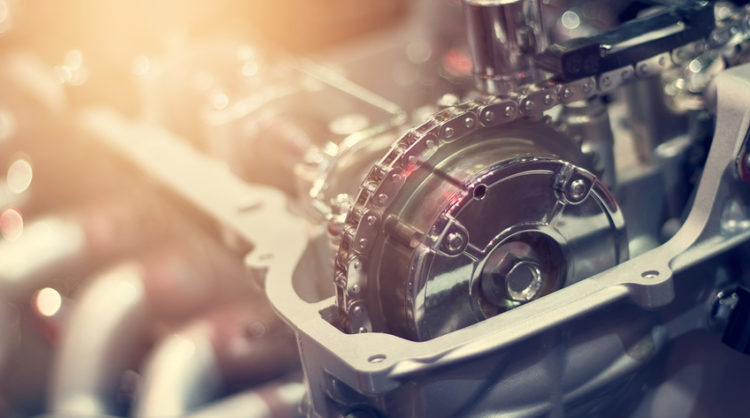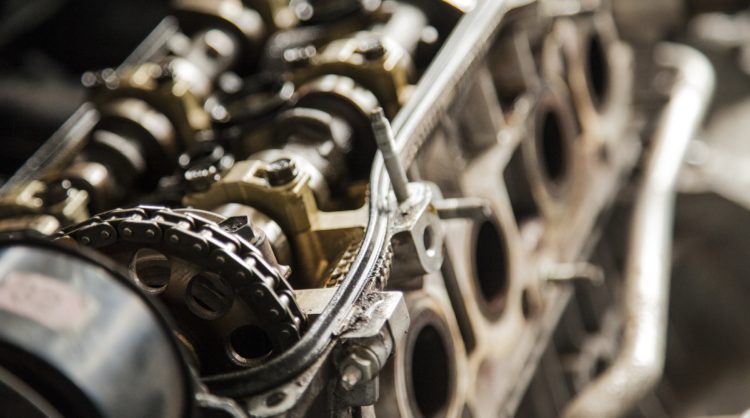The World’s-First Variable Compression Ratio Engine Could Kill Diesel Forever

Who doesn’t know about the recent talks of killing diesel as fuel for vehicles? Well, regardless of what the governments of the world might be doing, the fact of the matter is that the recent advancements in technology might see the disappearance of diesel as a fuel forever.
For far too long, the variable compression ratio engine has been regarded as nothing more than a myth among the automotive companies and masses, owing to how it has always been the Holy Grail of engine design. However, Nissan appears to be the first company to have gotten a hold of this Holy Grail.
The Death Knell for Diesel
Nissan’s luxury division, Infiniti, plans to introduce the first production variable compression ratio engine, which will be bestowed upon the company’s latest 2018 Infiniti QX50. The engine will be a 2.0-liter turbocharged four-cylinder motor, which will cause compression to vary between the ratios 8:1 to 14:1. According to Nissan, the lowest ratio (8:1) will offer the highest possible performance while the highest ratio (14:1) will offer top-notch efficiency. The engine of the new Nissan 2018 Infiniti QX50 has been designed in such a sophisticated way and is automatically able to find the optimum ratio to yield the greatest possible utility for the drivers.
The Case for Constant High Compression
When you consider the engines of cars that are involved in NASCAR, for instance, it is a fact that they have a very high compression ratio. Considering how they are supposed to be always on the top of their performance, can a case be made that lower compression doesn’t necessarily result in higher performance? On top of that, when you consider how higher compression offers better efficiency, would it not be better if engines were designed to be constantly at high compression?
The answer to the question lies in how high compression engines also cause pre-detonation of fuel which is not ideal. This knock can be prevented, however, by dropping the compression ratio during moments such as when the turbocharger boost is high. A variable compression ratio engine will help in doing exactly that, owing to how it is able to lower the compression ratio during turbo boost while increasing it when the boost is lower, so that greater efficiency may be achieved. What this means is that the vehicle will have access to power, when it is required, and better fuel economy, when it is not. What more could you wish for?
According to the company, the new engine has been able to achieve 27 percent better fuel economy, as opposed to Nissan’s 3.5-liter V6, while the torque and HP were found to be, more or less, the same. When you take it all into perspective, you have got to say that as more and more vehicles with variable compression ratio engine are sent out into the market, things for diesel will certainly become tougher.
Related posts

Common Mistakes Drivers Make When Buying A New Engine
Your car’s engine is one of the most important parts of your vehicle. Unfortunately, many drivers have common misconceptions about what to look for in a new or used engine. This often leads to mistakes that can be costly later on. But how can you be sure you’re not making a mistake when you’re investing […]

Top 3 Ranked Japanese Engines
In 2016, the top three goods that were imported were: vehicles, machinery, electrical machinery. The reasons why America bought $50 billion worth of automobiles from Japan in 2016 is because of the vehicles’ reliability and high-quality engines. If you are looking to buy the best Japanese engines, low mileage Japanese engines, used Japanese transmissions, or […]

Advances in Engine Technology
Cars aren’t going anywhere in the foreseeable future. Toyota alone is estimated to produce over 11 million cars in 2023. Having a high quality engine is one of the most important parts to overall car health and performance. Whether you are looking for a used Japanese engine, or new imported engines from Japan, it is […]